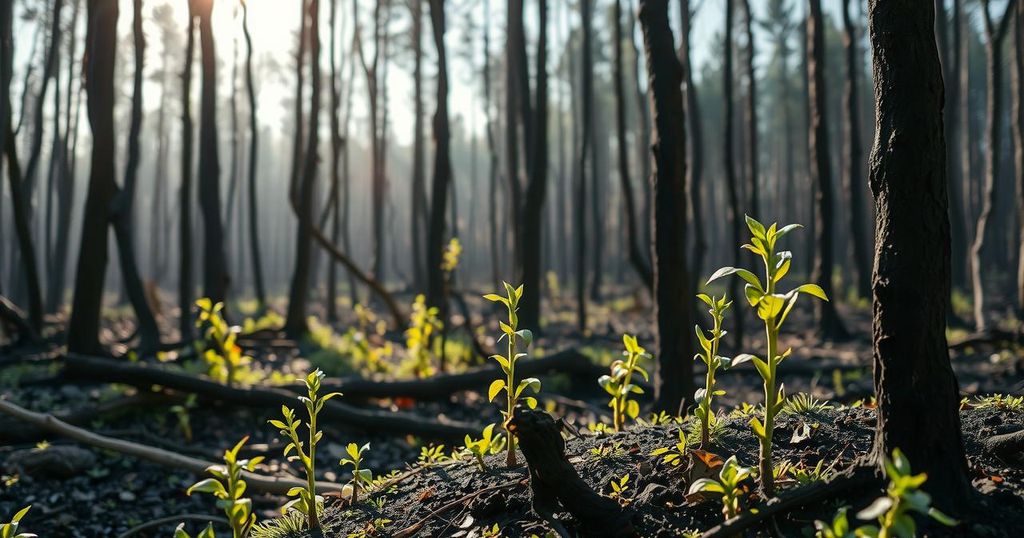Chile’s Ongoing Struggles One Year Post-Deadly Wildfires

One year after the deadliest wildfires in Chile, affected residents like Carlos Vidal continue to face challenges in rebuilding their homes. Government assistance has been slow, leading to protests demanding more action. While the Ministry of Housing acknowledges the delays, they report that many families are in various stages of reconstruction, indicating ongoing efforts to address housing needs.
Carlos Vidal is still clearing the remnants of his home nearly a year after Chile’s most devastating wildfires, which occurred in Valparaiso and Vina del Mar, resulting in 137 fatalities. Despite applying for government housing assistance, he has received no response and is reconstructing his house with the aid of a government grant. The aftermath of the fires continues to affect his community significantly, with many buildings remaining in ruins.
Local authorities, including Carolina Corti, the mayor of Quilpue, have expressed frustration over the government’s slow pace in assisting fire victims. She noted that victims lack clear information regarding their housing situations, emphasizing the uncertainty surrounding the timeline and logistics of the rebuilding efforts. Residents have been vocal about their dissatisfaction, with protests demanding urgency in government action.
On the anniversary of the wildfires, hundreds protested, citing a lack of solutions after a year. Renato Tapia, a protester, highlighted concerns for vulnerable populations, particularly retirees who have been waiting since March for the necessary documents to start reconstruction. Many affected individuals feel their critical situations remain unaddressed by authorities.
In response, the Chilean Ministry of Housing and Urbanism admitted that the rebuilding process has not been as swift as necessary. Minister Carlos Montes stated that the completion of homes typically extends beyond a year, often reaching up to three years. He assured the public that efforts would be intensified, now that a solid foundation for reconstruction has been established.
The ministry provided data indicating that out of 3,043 affected families, a combined 626 have received subsidies, while 636 are in the process. This translates to 41% of the families engaged in various reconstruction stages, with additional plans in motion to support the housing needs of over 685 families, further showcasing the government’s efforts to address the crisis.
The 2023 wildfires in Chile resulted in unprecedented destruction, particularly in coastal cities like Valparaiso and Vina del Mar. The aftermath has raised significant concerns regarding government response time and the adequacy of assistance for victims. Many residents continue to face uncertainties about recovery efforts, which prompted collective protests demanding enhanced government action and support. The slow pace of reconstruction has highlighted the hardships faced by vulnerable populations, particularly the elderly.
In conclusion, nearly a year after the catastrophic wildfires in Chile, many residents are still grappling with the consequences. Although the government has acknowledged the delays in reconstruction efforts, citizens remain frustrated by the lack of clarity and timely aid. The need for more robust and effective government intervention is essential to restore the affected communities to stability and security.
Original Source: www.usnews.com







